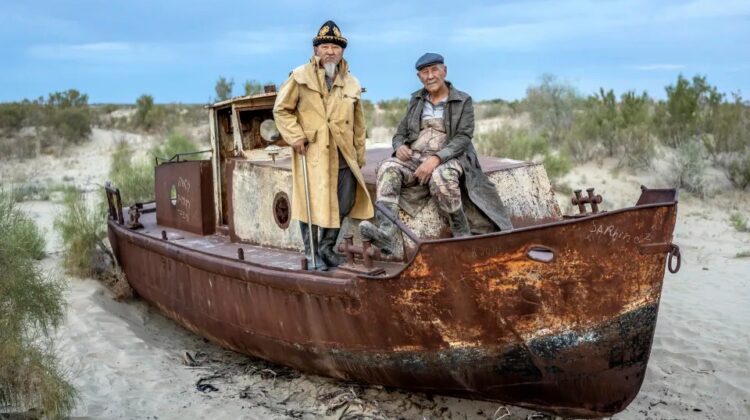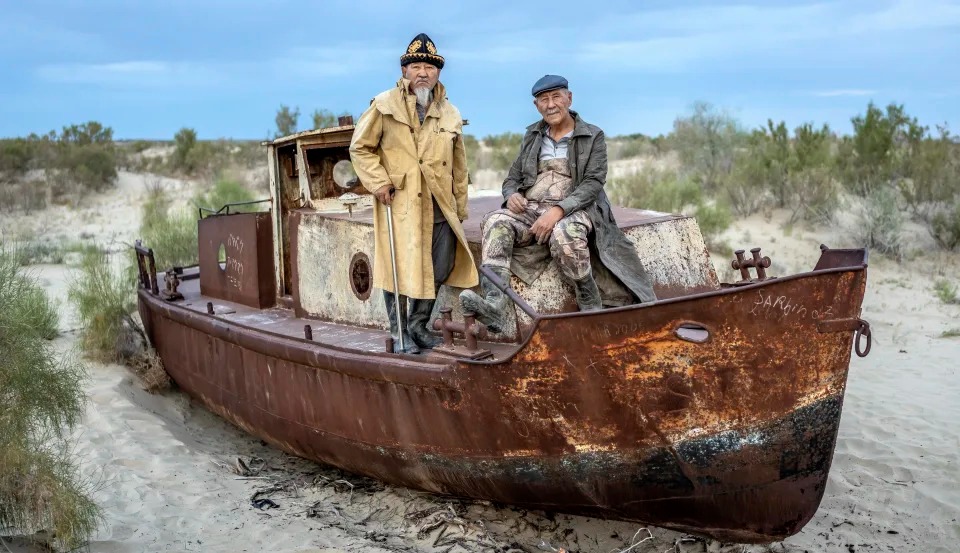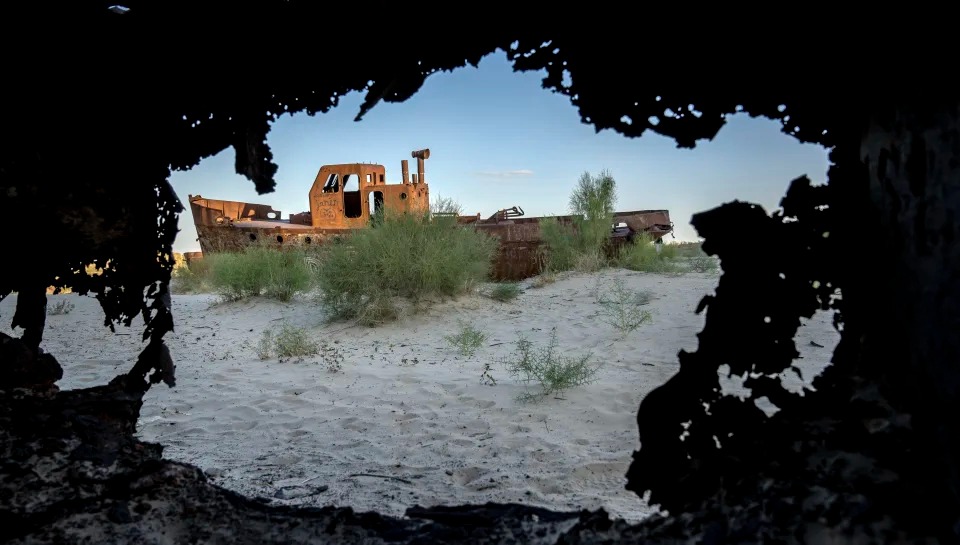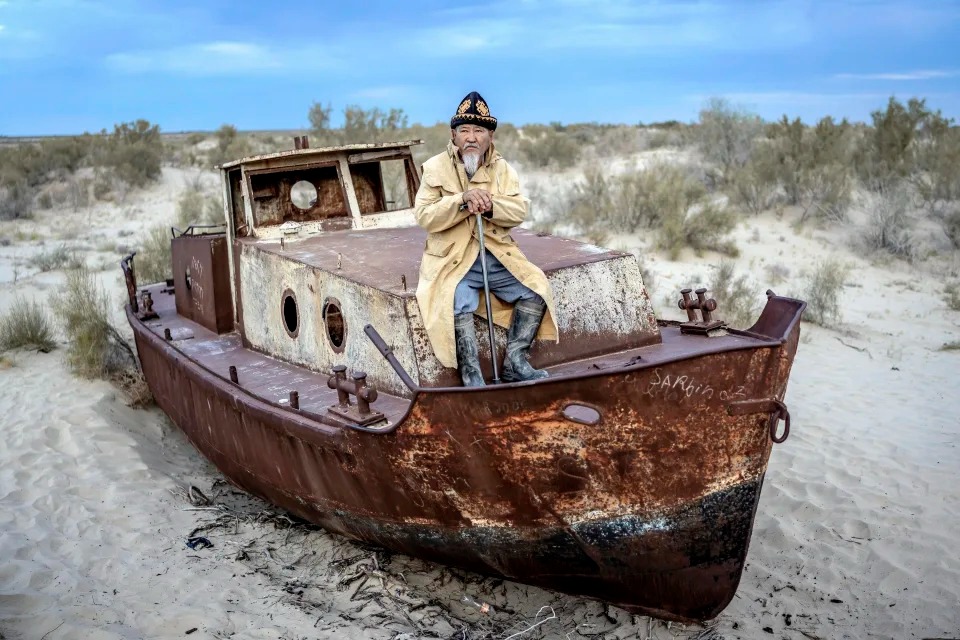
Ali Shadilov, 73, reclines on the floor of his home, reminiscing about a time when laughter echoed among the fishermen of the Aral Sea. Dusting off his hat, he recalls how the town elders’ warnings about the colossal sea’s demise were once met with amusement. “Everyone laughed and said that it would take several million years,” he reflects, his eyes reflecting a reality that no one could have fathomed – the irreversible drying up of the Aral Sea.
The Aral Sea, once ranked as the world’s fourth-largest inland water body spanning 68,000 square kilometers (26,300 square miles), was a vibrant ecosystem. Majestic steel ships sailed through deep blue waters teeming with sturgeon, catfish, and other species, sustaining the livelihoods of fishermen like Shadilov. Canned fish from the Aral traversed the Soviet Union, symbolizing prosperity for the region.

In an exclusive series, the Associated Press delves into the poignant narrative of the Aral Sea, its impact on the lives of those who dwelled along its shores, and the repercussions of climate change and restoration endeavors. Traversing both Uzbekistan and Kazakhstan, the AP documents the shifting landscape, where the sea’s monumental contraction leaves behind desolation and echoes of a bygone era.
The prosperity attributed to the Aral Sea extended beyond fisheries. Thriving hotels attracted tourists seeking respite in its cool waters. Communities flourished along the water’s edge, blending ethnic Russians, Kazakhs, and local Karakalpaks. Factories tirelessly processed and shipped fish cans, contributing to the bustling economy.
However, today, the Aral Sea has withered to less than a quarter of its former expanse. Abandoned towns, surrounded by vast deserts, stand as ghostly remnants far from the receding waters that once brought life. In Muynak, Uzbekistan, the AP interviews Shadilov and his peers, residents in their 60s and 70s, intimately tied to the sea’s remnants. They share poignant recollections of a once-mighty Aral, now reduced to a fraction of its grandeur.

Portraits capture these individuals alongside rusted ships, now stranded on dry land, serving as solemn reminders of their lost livelihoods and the profound impact of human actions on nature. Memories of a thriving fish market, boats gently bobbing on waves, and the abundance sustaining families are etched in their minds.
Shadilov, reflecting on his childhood classroom with a view of the sea, recounts the songs of returning fishermen and the melting icebergs. Following in his father’s footsteps, he became a fisherman, experiencing the lucrative bounty of catfish exceeding 120 kilograms (265 pounds). However, the warnings from elders in the 1960s, regarding the sea’s gradual disappearance due to increasing salinity, proved prescient.
Decades of Soviet Union-led irrigation projects, cultivating water-intensive crops like rice and cotton, diverted water from the Aral through poorly constructed channels. The sea rapidly dwindled, turning into separated lakes with boats navigating canals between them. By the mid-1960s, boats scraped against the bay floor, eventually becoming stranded relics.

As the water diminished, so did the population, and the once-thriving resorts shuttered. Families returned to their home countries, leaving behind a desolate landscape. The mode of transportation shifted from water to land, a stark contrast to the bustling maritime activities of the past.
Former fishermen, now in their twilight years, immortalize their memories through paintings of the Aral, while some mark their graves with anchors or lighthouses, poignant symbols of their life’s journey intertwined with the sea. Shadilov, summing up the collective sentiment, acknowledges the sea’s role in saving lives but laments, “It won’t come back.”
The tale of the Aral Sea serves as a stark reminder of the delicate balance between human progress and environmental preservation, urging a collective commitment to sustainable practices to protect the world’s precious natural wonders.

Leave a Reply